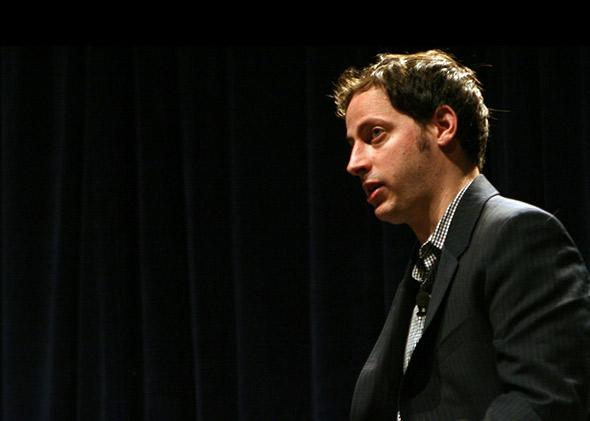On Sunday morning the simmering Democratic fear that Republicans might take over the Senate became real. Nate Silver had rendered his judgment and colored his charts. Months before, while others still saw Democrats holding the Senate, Silver had predicted that the 2014 election was a tossup. Nothing he has seen since has changed his mind. Republicans had recruited strong candidates, Barack Obama had gotten intimate with a 43 percent approval rating, and FiveThirtyEight remained skeptical of Democrats’ chances. “Our forecast might be thought of as a Republican gain of six seats,” wrote Silver, “plus or minus five.”
The substance of Silver’s prediction surprised exactly no one who covers politics. Politico had been covering the shades of Democratic panic for half a year, every time a Republican paid his filing fee. Larry Sabato, the quote-machine political science professor, had speculated back in January that Republicans might “win it all.” Earlier this month the Atlantic had asked whether carpetbagging New Hampshire candidate Scott Brown would be “the face of the coming Republican wave.” (Silver rated the possibility of a Brown win at one in four.)
But none of those voices mattered like that of Silver, the savant who had predicted the Obama waves in 2008 and 2012, much to the satisfaction of liberal readers. Within minutes of Silver’s FiveThirtyEight post going live, DSCC Executive Director Guy Cecil was reminding followers (and reporters) of how wrong Silver had been about the senate (if not Obama) in 2012.
Then came Michael Czin, the DNC’s press secretary, with more evidence that the party had banked a gaffe file of bad Silver calls, ready to go.
The DSCC took a gentler approach later, releasing a memorandum that noted that, bless their hearts, the “groundbreaking” FiveThirtyEight team was limited by a “scarce supply of public polls.” The numbers looked poor now, the memo implied, because “the Koch brothers and other Republican allies have spent months outspending Democrats, presenting only one (false) side of the story,” so no fair looking now.
The DSCC memo did change the story. It was no longer “Dems to Lose Senate.” It became “Dems vs. Silver.”
The Silver backlash was inevitable. Silver’s cachet on the left, which was high after 2008, became incomparable after 2012. That was the year FiveThirtyEight became a digital security blanket for liberals, a site they could refresh and refresh and refresh some more when their other news sources warned them that Mitt Romney might actually win.
In the days before the 2012 election, one-fifth of visitors to the New York Times’ website ended up at FiveThirtyEight. Conservatives and defenders of the horse race balked at this. A small conservative news site started publishing “Unskewed Polls,” correcting for media bias, and deriding Silver in personal terms. (The site is defunct, but its proprietor now says his “projection of the presidential race was closer than those of Michael Barone, Dick Morris and Karl Rove.” This is not wrong.) BuzzFeed profiled some of the liberals “clinging” to Silver’s numbers. Politico’s media columnist wondered whether Silver might become a “one-term celebrity” after the election proved more dynamic than his polls.
Obama won another term, and so did Silver. He never stopped dunking on Politico and “columnists,” and his readers never stopped agreeing with him. Older election handicappers—Sabato, Charlie Cook, Stu Rothenberg—relied less on poll averages and more on gut and reporting. They were eclipsed. They’ve dealt with that.
“A lot of people after 2012 started seeing what Nate was saying as tablets handed down from God,” said Cook, founder and editor of the Cook Political Report. “They started acting on it, in terms of donations. So I understand why the DSCC and DNC would bitch and moan about stuff we do, but go nuclear on Silver. The audience that Rothenberg and we have—it’s a Washington audience, mostly. It’s media, lobbyists, political action committees, political pros, grazing and taking things with a grain of salt. Nate has a very different audience and a sort of aura of infallibility.”
Silver cultivates that aura by declining to listen to the Democrats’ spiel. According to Cook, the DSCC sat with him and his team for “hours” before they issued a tranche of terrifying new Senate race ratings. Silver does not submit to any spin sessions. He collates the numbers, tells readers how he did so, and then laughs at the deniers.
Still, Democrats are happy to use Silver for their purposes. When he is bearish on a Republican, as he was on Scott Brown, it makes it into Democratic pitches. When he predicts a bad outcome for a Democrat, it makes it into even more pitches. Doom, the sort of doom that the reader is elite enough both to see and to halt, is a fantastic motivator.
So official Democrats are performing a neat mental trick: They actually disagree with Silver—hence their vigorous attacks on his recent forecast—but also use his gloom to help their fundraising. An open question for Silver is whether he’ll retain his popularity on the left if the election offers nothing but bad news for Democrats. Do the liberals who checked in daily with FiveThirtyEight and got good news after the Romney-Obama debate in Denver really want to be reminded of how bad the Senate races look? It was one thing to see which way a swing state like Virginia might tip, but it’s something else to obsess over a Senate race in a deep-red state where the candidate asking for your donation is going to distance himself or herself from the president you still support.
In 2012 BuzzFeed included The Nation’s columnist Katha Pollitt in its profile of FiveThirtyEight-obsessed liberals. But in 2014 FiveThirtyEight is giving her no solace. Is she going to keep refreshing?
“I will probably check FiveThirtyEight obsessively,” she said, “and search for proof that Nate is wrong by consulting a very Democratic astrologer.”
